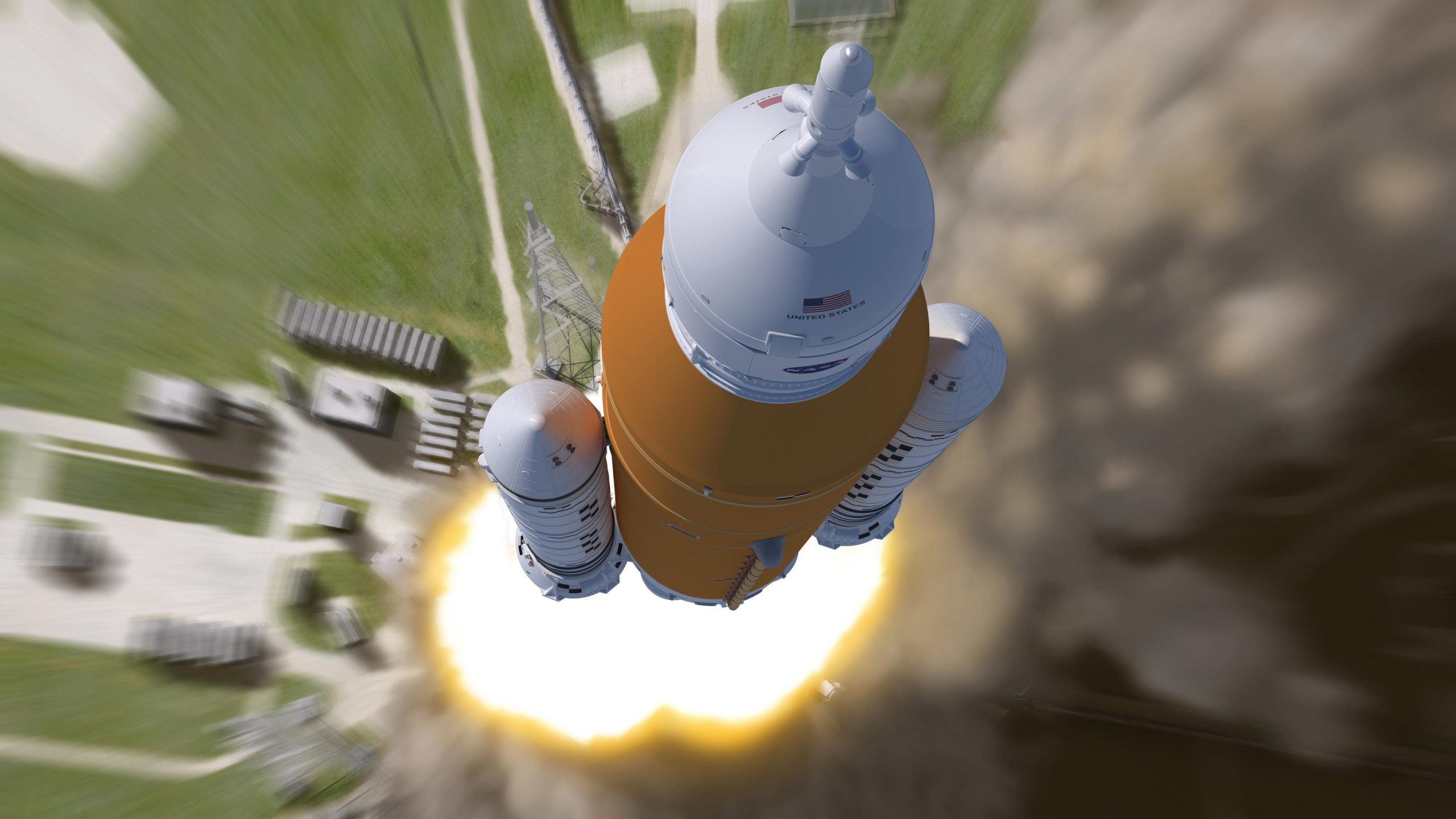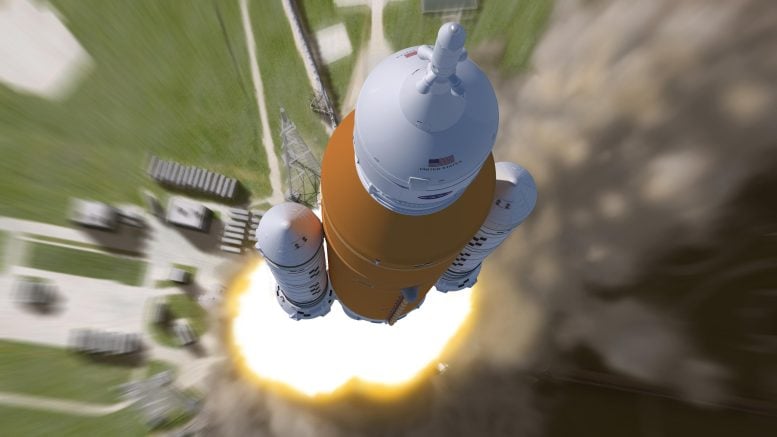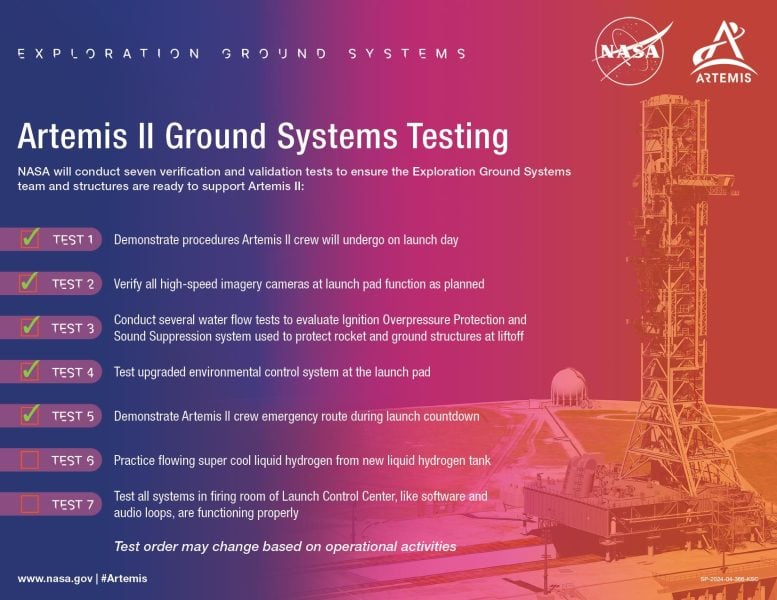

NASA’s Kennedy Space Center has enhanced its high-speed camera systems for the upcoming Artemis II mission, ensuring meticulous data capture during launch.
After successfully testing both high-speed film and digital cameras at mobile launcher 1 and Launch Pad 39B earlier in the year, NASA’s Kennedy Space Center teams in Florida recently concluded further tests to collect additional data from the film cameras in preparation for the Artemis II mission.
Building on the first test, engineers with the agency’s Exploration Ground Systems Program updated the software that activates the film cameras remotely from the firing room at the spaceport’s Launch Control Center. Teams turned on the cameras remotely to demonstrate two different capabilities: triggering the cameras through the countdown clock, which is how these cameras will normally operate during the launch countdown, and activating them through the emergency camera control panel, which allows teams to turn on the cameras in the unlikely event of an emergency during launch countdown.

The 68 high-speed cameras, which start during the final 12 seconds of the countdown, will provide views of the rocket and surrounding ground structures during launch. The imagery also is used in detailed post-launch analysis.
This test is part of integrated testing to verify and validate the ground systems that will support launch. The Artemis II test flight will be NASA’s first mission with crew under the Artemis campaign, sending NASA astronauts Reid Wiseman, Victor Glover, and Christina Koch, as well as CSA (Canadian Space Agency) astronaut Jeremy Hansen, on a 10-day journey around the Moon.